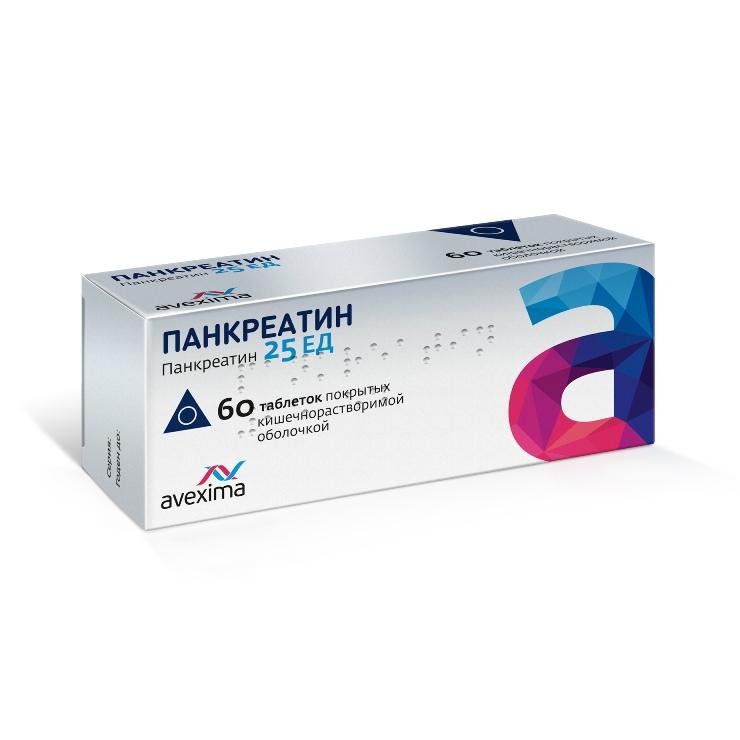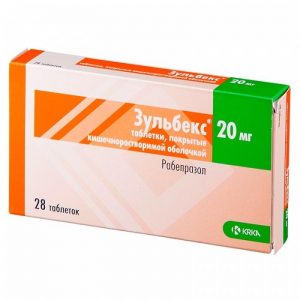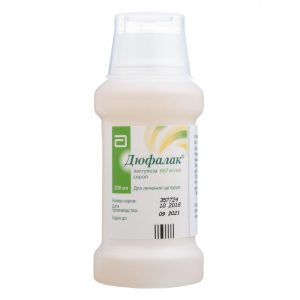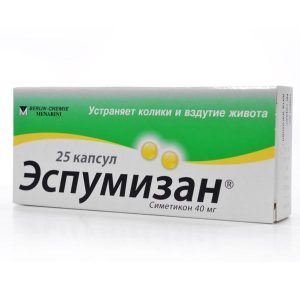Description
Pharmacological action
Compensates for insufficiency of exocrine pancreatic function, has proteolytic, amylolytic and lipolytic effects.
Pancreatin-containing enzymes (lipase, amylase, trypsin, chymotrypsin) help break down proteins to amino acids, fats to glycerol and fatty acids, starch to dextrins and monosaccharides.
Improves the functional state of the gastrointestinal tract, normalizes digestion processes.
Trypsin inhibits the stimulated secretion of the pancreas, providing an analgesic effect.
Pancreatic enzymes are released from the dosage form in the alkaline environment of the small intestine, because protected from the action of gastric juice by the membrane.
Indications of
for digestive disorders associated with liver and pancreas diseases
chronic pancreatitis with insufficient pancreatic function
achilia
anacid and hypacid gastritis
chronic enterocolitis.
Contraindications
Hypersensitivity to the drug components, acute pancreatitis, exacerbation of chronic pancreatitis, children under 6 years old
Use during pregnancy and lactation
The safety of pancreatin during pregnancy has not been adequately studied. Use is possible in cases where the expected benefit to the mother outweighs the potential risk to the fetus. During lactation, the use of pancreatin is not contraindicated.
Composition
Active ingredient: pancreatin – 0.1 g (25 units).
Excipients: milk sugar (lactose), gelatin, potato starch, calcium stearate, cellacephate (acetylphthalyl cellulose), titanium dioxide (titanium dioxide), liquid paraffin (liquid paraffin), tween-80 (polysorbate), red dye azorubine (acid 2 )
Dosage and Administration
Inside. The drug is taken during or after a meal, without chewing and drinking with an alkaline liquid (water, fruit juices).
Dose is determined individually depending on the degree of digestion.
Adults usually take 2 to 4 tablets 3 to 6 times a day. The maximum daily dose is 16 tablets.
In children over 6 years of age, the drug is used as directed by a doctor. The dose is determined individually. Usually, 1 tablet is prescribed 3 times a day.
The duration of treatment can vary from a few days (if the digestive process is disturbed due to errors in the diet) to several months or years (if constant replacement therapy is necessary).
Side effects
Allergic reactions. Rarely – diarrhea, constipation, a feeling of discomfort in the stomach, nausea (a causal relationship between the development of these reactions and the action of pancreatin has not been established, because these phenomena relate to symptoms of exocrine pancreatic insufficiency). With prolonged use in high doses, the development of hyperuricosuria, hyperuricemia is possible. With cystic fibrosis, if the required dose of Pancreatin is exceeded, strictures (fibrotic colonopathy) may develop in the ileocecal section in the ascending colon.
When using Pancreatin in high doses in children, perianal irritation and irritation of the oral mucosa are possible.
Storage conditions
In a dry place at a temperature not exceeding 20 ° C.
Shelf life
2 years
Terms and conditions
without prescription
orma
tablet
Anzhero-HFZ, Russia




